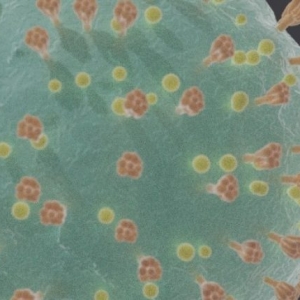The Stream, May 14, 2020: Drop in Pollution During Covid-19 Could Alter Temperatures, Monsoon Rains
The Global Rundown
The abrupt changes in pollution levels caused by the Covid-19 crisis could alter monsoon rains. The U.S. Environmental Protection Agency’s (EPA) independent science advisers argue that a proposal by the on tackling lead contamination is too weak. A dam project operated by Brazil and Paraguay plans to release water for Argentina’s parched Parana River, a major channel for grain shipments. Nine U.S. states file suit against the Environmental Protection Agency (EPA) for easing clean air and water lines during Covid-19. The first decade of the 2000s was the driest the Upper Missouri River Basin has been in 1,200 years, a study shows.
“In terms of the most severe flow deficits, the driest years of the Turn-Of-The-Century-Drought in the [Upper Missouri River Basin] appear unmatched over the last 1,200 years. Only a single event in the late 13th century rivaled the greatest deficits of this most recent event.” –A new study, published this week in the Proceedings of the National Academy of Sciences, in reference to dry conditions along the Upper Missouri River Basin from 2000-2010. Scientists found that the drop in water levels was caused by rising temperatures reducing snowpack levels in the Rocky Mountains, which forms the Missouri’s headwaters. The Washington Post
Latest WaterNews from Circle of Blue
HotSpots H2O: Flooding, Locusts, and Covid-19 Strike East Africa — Heavy rainfall and fatal flooding struck parts of East Africa over the past several weeks, leaving hundreds of people dead and displacing thousands.
What’s Up With Water – May 11, 2020 — This week’s edition of What’s Up With Water includes coverage on a dam break in Uzbekistan, flooding in western Kenya, and U.S. industries seeking federal aid amid Covid-19.
By The Numbers
60 percent Amount that air pollution in some urban areas across the globe has dropped in the past couple months due to lockdown restrictions during the Covid-19 crisis. As a result, scientists say, more sunlight may be able to reach the earth, a phenomenon that could lead to warmer temperatures and heavier monsoon rains. Scientists note that even if a brief boost in temperatures occurs due to the clearer skies, greenhouse gas emissions pose a much greater long-term threat to the global climate. The Guardian
9 U.S. states that sued the EPA for temporarily relaxing clean air and water laws due to the coronavirus. The new policy, which was announced on March 26, spares companies from penalties in a variety of circumstances if the companies can prove their violations were related to Covid-19. The lawsuit argues that the policy is too broad and failed to account for the impact on the public health. Reuters
Science, Studies, and Reports
In a statement this week, the Itaipu hydroelectric dam, a joint operation between Brazil and Paraguay, announced that it will open its spillway for 12 days to help raise water levels in Argentina’s Parana River. The Parana, a key waterway for grain shipments, has been grappling with low water levels for months. Reuters
On the Radar
An October 2019 proposal by the U.S. EPA related to lead in water is weaker than it could be, according to the agency’s independent science advisers and other critics. Experts and environmental groups say the agency should be more proactive in replacing lead service lines, which affect an estimated 6 million U.S. households. The review by the EPA’s Science Advisory Board (SAB) also questioned whether the lead action level should be lowered, and whether the proposal’s cost-benefit analysis thoroughly considered all perspectives on the problem. The Hill
Kayla Ritter is a recent graduate of Michigan State University, where she studied International Relations and Teaching English to Speakers of Other Languages. She is currently based in Manton, Michigan. Kayla enjoys running, writing, and traveling. Contact Kayla Ritter







Leave a Reply
Want to join the discussion?Feel free to contribute!